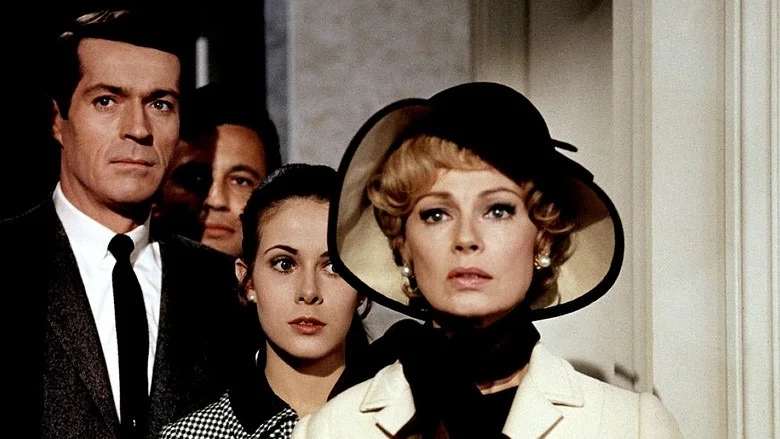Beginner’s Guide to Alfred Hitchcock: Frenzy (1972)
What do you do after you break Hollywood? Alfred Hitchcock released Psycho in 1960. The movie turned Hollywood inside out, and 1960s cinema was born. The Hays Production Code was losing its grip in the 1960s, and filmmakers were becoming more audacious. Hitchcock was a bold and innovative filmmaker even under the confines of the Hollywood studio system. In fact, part of his genius came from subverting the rules and bending them to work for him. After Psycho, Hitchcock made The Birds in 1963 and Marnie in 1964, trying to make Tippi Hedren a star (we’ll get to her very soon). His next two films after that were not well received. This leads us to Frenzy in 1972, a rejuvenation for the director. Released 45 years ago this month, Frenzy was Hitchcock’s first film shot in Britain in about twenty years and his first R-Rated film.
Jon Finch stars as Dick Blaney, a down on his luck Londoner who gets falsely accused of raping women and murdering them with a necktie. He is implicated when his ex-wife Brenda (Barbara Leigh-Hunt), with whom he had a contentious and complicated relationship, is murdered. Along with his current girlfriend Babs (Anna Massey), Dick tries to escape the police and clear his name. Hot on the case is Chief Inspector Oxford (Alec McCowen), while the real killer Robert Rusk (Barry Foster) sets up false evidence to frame Dick.
Every Alfred Hitchcock movie has "The Scene" where his directorial vision and knack for dynamic and striking storytelling comes through in sheer cinematic perfection. Hitchcock made a number of classics and some films that are less successful, but every movie has "The Scene." In Frenzy, it’s when Rusk takes his latest victim into his building and up the stairs into his apartment. As they walk in, he says, “you’re my type of woman.” He shuts the door, and then the camera tracks back down the stairs in a deafening silence. As the camera reaches the street, regular city noise fills the silence. People are living their lives while a poor woman is being attacked. It’s an unforgettable moment, one that is chilling to the bone.
Hitchcock loved three things: sex, death, and food, usually with two or more in some combination. Frenzy features a lot of sex and death and a lot of death and food. There’s another ingenious scene with the murderer in a potato truck, and the murder of the ex-wife Brenda is graphic and disturbing. This is Hitchcock really letting loose without the Hays Production Code. Sure, one of Hitchcock’s best attributes is his power of suggestion (that he still exercises here) but it is fascinating to watch him make a film as ugly and gruesome as Frenzy. Gone are the days of Hitchcock’s macabre glamor; he is now working in the grime of London. Of course, Hitchcock opens the film with travelogue shots of London, with some cheesy parade music on the soundtrack. A man is making a speech about cleaning up the water in British rivers—and then a body is found in the water.
The acting ensemble of Frenzy is quite remarkable. I wouldn’t consider any of the actors major A-list stars, but many of them are highly regarded character actors. Finch, Foster, McCowen, and Massey are incredible in their lead roles, bringing such vitality and specificity to their parts. The film is full of fun supporting performances, from the likes of Billie Whitelaw, Vivien Merchant, Bernard Cribbins, and Clive Swift, that pepper the film with color and humor. As dirty as Frenzy is, Hitchcock’s sense of fun hasn’t been lost. The film zips along at a frenetic pace, but Hitchcock still manages to create interesting character beats and unique personas to fill the screen.
Frenzy was Hitchcock’s second to last film. It’s an indication of what Hitchcock could have done with the rest of his career had he lived longer. This is Hitchcock telling us he still has some tricks up his sleeve. After his underwhelming late 1960s period, Frenzy was a shot of adrenaline for his career. The film earned positive reviews from critics (both at that time and now), received a few Golden Globe nominations, including Best Director, and was a moderate financial success. Frenzy is a strange and taxing movie, but one that is oddly enjoyable and hard to resist.















